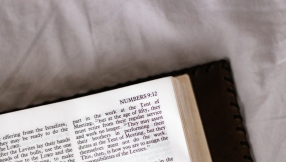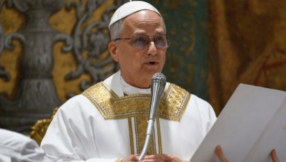Evangelical Christians in Mexico Increasingly Persecuted by 'Traditional Catholics'
In the indigenous region of Chiapas state, traditional Catholics - following a blend of Catholicism and native religious practices - are more frequently being accused of various acts of religious intolerance against protestants, such as "threats, intimidation, and robbery or expulsion from their communities, or death," reported Alfonso Farrera, director of the National Bar of Christian Lawyers, to Compass Direct News.
In total, the bar says it has records of 200 cases of unresolved religious intolerance against evangelical Christians in Chiapas state, while incidents of persecution are "accelerating daily in the indigenous regions."
Many of the conflicts arise from community leaders demanding evangelicals pay quotas for Catholic festivals, according to Compass. Some Evangelicals have said that though they are willing to cooperate in community projects, they refuse to fund religious festivals involving drunkenness and immoral behaviour.
Common complaints by Evangelicals include local leaders cutting off the water supply or being denied benefits from government programmes because of their faith.
Evangelical families are also often threatened with expulsion from their properties because they do not share in the faith and lifestyle of the town.
The Roman Catholic Bishop of San Cristobal de las Casas, Chiapas, Felipe Arizmendi, has denied ties with the "traditional Catholics".
Arizmendi declared that the "so-called traditional Catholics, who do not depend on our diocese, do not take into account the Bible nor the laws of this country, but are governed by their own agreements and traditions," according to Mexico City's La Jornada newspaper on February 8.
Protestant Christians in other states besides Chiapas have also reported persecution by indigenous groups and by traditional Catholics. Christians living in indigenous regions in the central state of Hidalgo are among those who have reported harassment because of their faith.
According to the World Evangelical Alliance Religious Liberty Commission, persecution of protestant Christian is likely the result of Mexico's association of Protestantism with America. Traditional Mexicans view Protestant Christianity as a threat to their culture, tradition, and Catholic faith, especially given the number of Mexicans in recent decades that have changed to evangelical Christianity after reading the Bible.
Mexico is composed of 89 per cent Roman Catholic and only six per cent Protestant.













